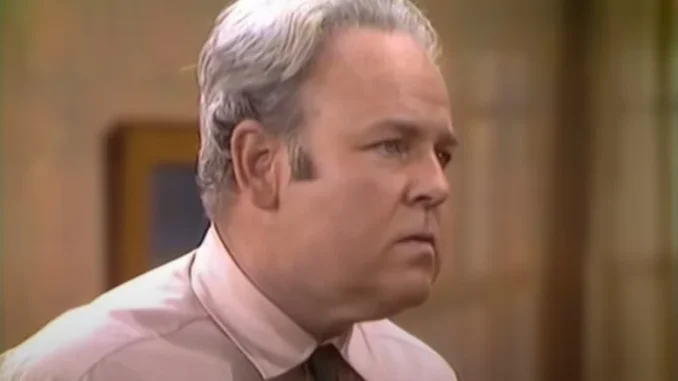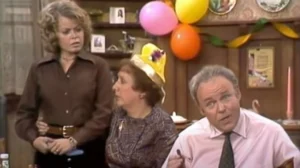
Norman Lear knew what he was getting into with “All in the Family.” The late TV giant was warned from the outset that Americans (white, straight, conservative Americans, if we’re being real) would revolt against a sitcom that talked about the hot political topics of the day and didn’t try to sugarcoat the country’s history of racism and using religion to justify its bigotry and hatreds towards those regarded “the other.” Nor, for that matter, did his doubters buy into the concept that audiences wanted to see an honest reflection of how families behave in the comfort of their homes.
Hindsight being 20/20, it’s worth highlighting that Lear’s skeptics had valid reasons for believing what they did. Despite being based on the British comedy series “Till Death Us Do Part,” there was nothing quite like “All in the Family” on the U.S. airwaves when it premiered in 1971 on CBS. American sitcom dads were upstanding, tolerant members of their community like Andy Taylor on “The Andy Griffith Show,” not hypocrites who slandered others and justified their prejudices like “All in the Family” patriarch Archie Bunker (Carroll O’Connor). By the same token, you didn’t see parents and their grown children quarreling like there’s no tomorrow or doing basic things like using a toilet or alluding to sex through any means other than carefully disguised innuendo.
Speaking of the horizontal mambo: “All in the Family” announced its intentions in its first episode, “Meet the Bunkers,” which saw Archie and his wife Edith (Jean Stapleton) coming home from church earlier than expected, only to find their daughter Gloria (Sally Struthers) and her husband Michael/Mike (Rob Reiner) — better known as “The Meathead” — getting frisky. Funnily enough, however, it was Archie’s response to the situation that led to Lear butting heads with CBS.

Ruffling feathers was nothing unusual for All in the Family
I would say that Archie and Edith barged in on Gloria and Mike in the middle of an afternoon delight (my apologies to David Rose for using that term), except it wasn’t actually the afternoon. That itself was the sticking point for CBS and Lear on the episode, as the latter explained to the New York Post in 2021:
“Archie’s very first line is, ’11:30 on a Sunday morning?’ The network wanted that line out. Because he’s talking about 11:30 on a Sunday morning and it implants a picture in the audience’s mind. I remember thinking, if the line comes out, I’m going to be in trouble from then on with the silliest things. So that was our first dissent. I said, ‘If you don’t play that line, I won’t be tomorrow.’
“It wasn’t until the show went on the air in New York, three hours earlier [than California] and someone from my family called and said that it was [kept] in.”
This wouldn’t be the last time “All in the Family” ruffled feathers. Throughout its run, the show tackles subjects such as sexual assault, menopause, infidelity, homophobia, and discrimination in all its shapes and forms, along with the Vietnam War, Watergate, and other major real-world events (so much so to earn the ire of Richard Nixon, himself a matter of discussion on the series more than once, and not in a flattering way). Yet, through thick and thin, viewers lapped it up. It wasn’t just the jokes, either; an emotional payoff to a dramatic situation was just as likely to get an explosive reaction from the show’s live studio audience as a zinger or a funny exchange was.
Lear, as it turned out, was right after all.